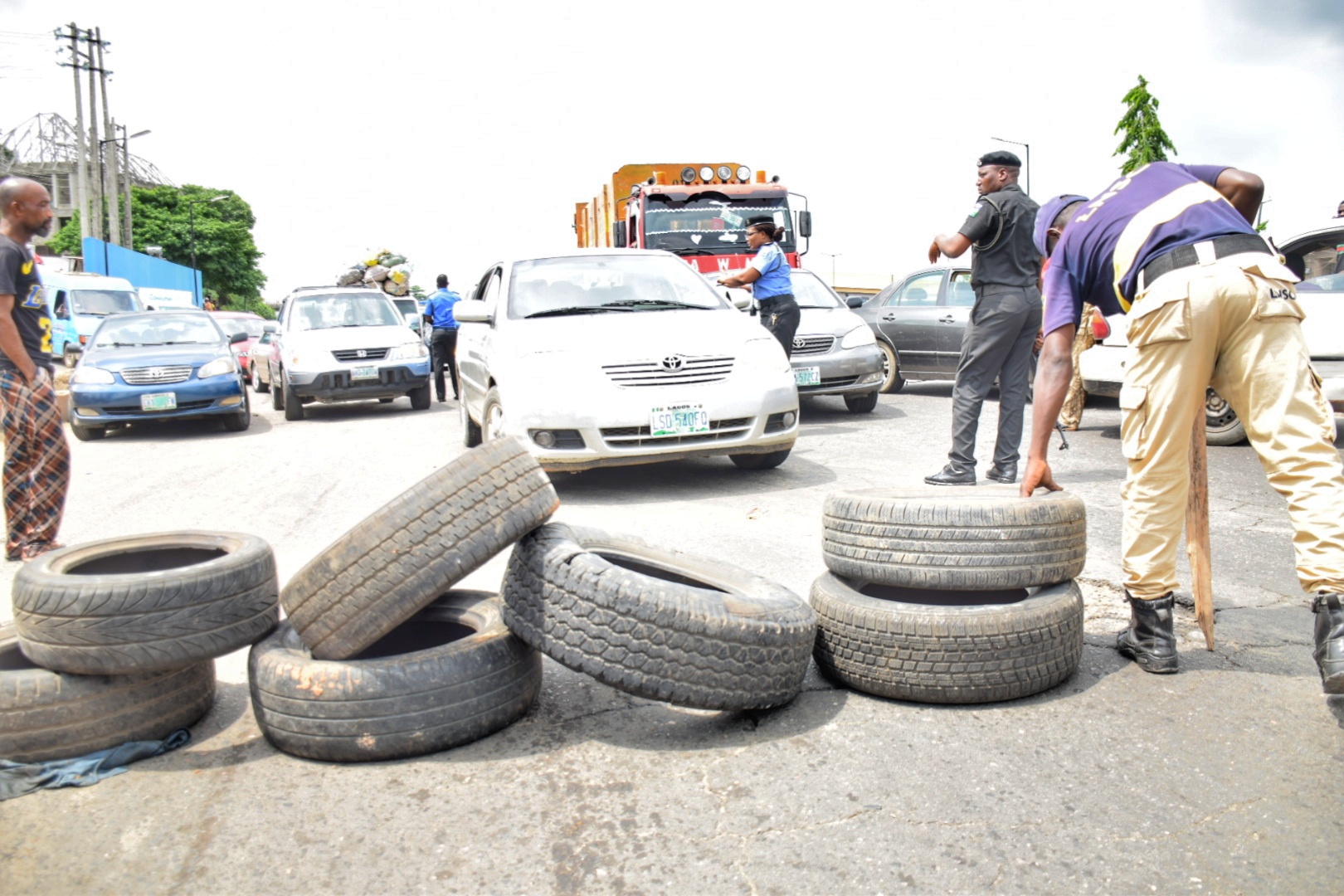CLEEN Foundation, a non-governmental organisation, says security agents are hindering the successful implementation of the ban on inter-state movement.
At the sixth teleconference meeting of the Nigeria Governors’ Forum (NGF), the governors had agreed to ban movement between states for two weeks as part of efforts to contain the spread of COVID-19.
But in its report released on Friday, the organisation expressed concern over the ineffective implementation of the ban.
It said despite the ban, inter-state movement, which the presidential task force (PTF) on COVID-19 has described as one of the major causes of community transmission and increasing number of cases, continues to thrive.
Advertisement
The non-profit organisation said it observed cases of exploitation by security agents, thereby granting travellers access to other states.
It said such exploitation was observed in Kogi, Delta, Bayelsa, Abuja, among others.
“As already noted, our observers reported the movement of travellers along the Abuja-Lokoja Highway. In Bayelsa state, it was observed that there was complicity on the part of the security personnel manning border posts and tollgates into the state,” the report read.
Advertisement
“There were reported incidences of extortion by security personnel to enable transporters and commuters enter the state. The situation is not different in Delta state where there are regular entry and exits into the state through the Asaba-Onitsha and Patani-Bayelsa axis due to the compromising nature of security personnel.
“In the South Eastern region, particularly borders between Imo and Abia states (Owerrinta/Okpala), it was observed that the borders between the two states made it possible for citizens to move freely with no hinderance. Transporters in Imo state have devised various means of moving commuters in and out of the state.
“It was further observed that the Abia state COVID-19 Task Force intercepted a lorry carrying youths from the northern parts of the country into the state against government regulation.
“In South Western states, there have been reported cases of influx of youths allegedly from Zamfara state into Osun and Oyo states. The Governor of Oyo recently stated that the challenges with noncompliance with restrictions on interstate movement was majorly between Lagos-Ibadan and Ibadan-Ife highways.
Advertisement
“In Yobe state, North East Nigeria, traders were reported to have travelled to Kano for business despite knowing the high level of COVID-19 pandemic in the state. Kaduna state was observed to have strictly restricted inter-state movements.”
On compliance with the stay-at-home directive, social distancing guidelines, and ban on religious gatherings, the organisation said it discovered a lack of compliance by citizens to guidelines and precautionary measures provided by the Nigeria Centre for Disease Control and the presidential task force on COVID-19.
It mentioned that some of the reasons for the poor compliance include inadequate banking facilities, and lack of harmonised guidelines on the timelines and procedures for easing the lockdown.
The report also noted that inadequate training of security agents on policing the pandemic at the different levels or phases contributed to the non-compliance with provided directives.
Advertisement
CLEEN foundation called on state governments to immediately beef up security at the entry points into sub-national regions across the country to help check the spread of COVID19 through community transmissions.
It also urged commercial banks and other private businesses to priortise the welfare and safety of customers.
Advertisement
The organisation called on law enforcement agents to be proactive in enforcing social distancing rules, use of face masks in public and ban on large gatherings, especially in worship centres, while ensuring that human rights are not violated.
As of Thursday, Nigeria had recorded 3,526 confirmed cases of COVID-19, out of which 601 patients have been discharged while 107 persons have died.
Advertisement
Add a comment






